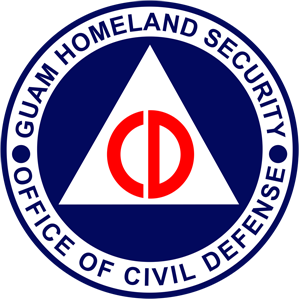No New Confirmed Cases; Continue to Take Preventive Measures
The Department of Public Health and Social Services (DPHSS), along with partner agencies, continue efforts to mitigate the spread of dengue virus on Guam.
No New Confirmed Cases
To date, there remain seven confirmed locally acquired cases of dengue fever. Today, seven suspect cases resulted in negative findings. DPHSS continues to receive suspect cases on a near daily basis as a result of the department’s enhanced surveillance and increased community outreach.
Preventive Measures
Dengue Presentations
The U.S. Centers for Disease Control (CDC) and Prevention continues to provide DPHSS with technical assistance on epidemiological surveillance, monitoring, and risk communications. DPHSS is working closely with a physician from the CDC to provide dengue clinical management presentations to local organizations, including the Department of Education, village mayors, elected officials, healthcare providers, military hospitals/clinics, and private clinics. Information on locations, dates, and times is forthcoming.
The Department of Public Health and Social Services (DPHSS), along with partner agencies, continue efforts to mitigate the spread of dengue virus on Guam.
No New Confirmed Cases
To date, there remain seven confirmed locally acquired cases of dengue fever. Today, seven suspect cases resulted in negative findings. DPHSS continues to receive suspect cases on a near daily basis as a result of the department’s enhanced surveillance and increased community outreach.
Preventive Measures
- The dengue virus is spread primarily through the bite of infected Aedes species mosquito.
- Prevent dengue by avoiding mosquito bites.
- Reduce the number of new mosquitoes that carry dengue by eliminating the places they lay eggs. Once a week, empty and scrub, turn over, cover, or throw out any items that hold water like tires, buckets, planters, toys, pools, birdbaths, flower pot saucers, or trash containers. Mosquitoes lay eggs near water.
- Use an outdoor insect spray made to kill mosquitoes in areas where they rest. Mosquitoes rest in dark, humid areas like under patio furniture, or under the carport or garage.
- Keep mosquitoes out. Install or repair and use window and door screens. Do not leave doors propped open.
- Use Environmental Protection Agency (EPA)-registered insect repellents with one of the following active ingredients: DEET, picaridin, IR3535, oil of lemon eucalyptus, para-menthane-diol, or 2-undecanone.
Dengue Presentations
The U.S. Centers for Disease Control (CDC) and Prevention continues to provide DPHSS with technical assistance on epidemiological surveillance, monitoring, and risk communications. DPHSS is working closely with a physician from the CDC to provide dengue clinical management presentations to local organizations, including the Department of Education, village mayors, elected officials, healthcare providers, military hospitals/clinics, and private clinics. Information on locations, dates, and times is forthcoming.
Mosquito Surveillance and Control
As part of vector control efforts, DPHSS continues mosquito trapping and identification.Along with the Department of Public Works and the Mayors Council of Guam, cleanup efforts continue with the removal of minor debris to lessen mosquito breeding sites.
DPHSS mosquito surveillance suggests that Aedes albopictus is the mosquito species spreading dengue on Guam. Aedes albopictus lays its eggs in natural and artificial water holding containers, such as tree holes, coconuts, bromeliads, water barrels, trash, closed gutters, tarps, and tires. Generally, A. albopictus does not reproduce in large bodies of water, such as ponding basins and reservoirs.
Dengue Fever Symptoms
See your healthcare provider if you experience any of the following symptoms of dengue fever: fever, aches and pains, rash, mild bleeding usually around the nose or gums. Visit your nearest hospital emergency room if you experience any of the following symptoms of severe dengue fever: severe abdominal pain, persistent vomiting, significant bleeding, lethargy or restlessness.
To diagnose dengue, a healthcare provider may order blood tests to look for dengue. A blood test is the only way to confirm the diagnosis.
For those without a primaryhealthcare provider,call the Northern Regional Community Health Center in Dededo at (671) 635-7400 or the Southern Regional Community Health Center in Inarajan at (671) 828-7157 to make an appointment. Walk-ins are accepted daily, Monday through Friday, beginning at 8 a.m.
For more information, visit https://ghs.guam.gov/,or contact the Joint Information Center Monday through Friday from 8 a.m. to 5 p.m. at (671) 478-0208/09/10. If there is an emergency, dial 911.







